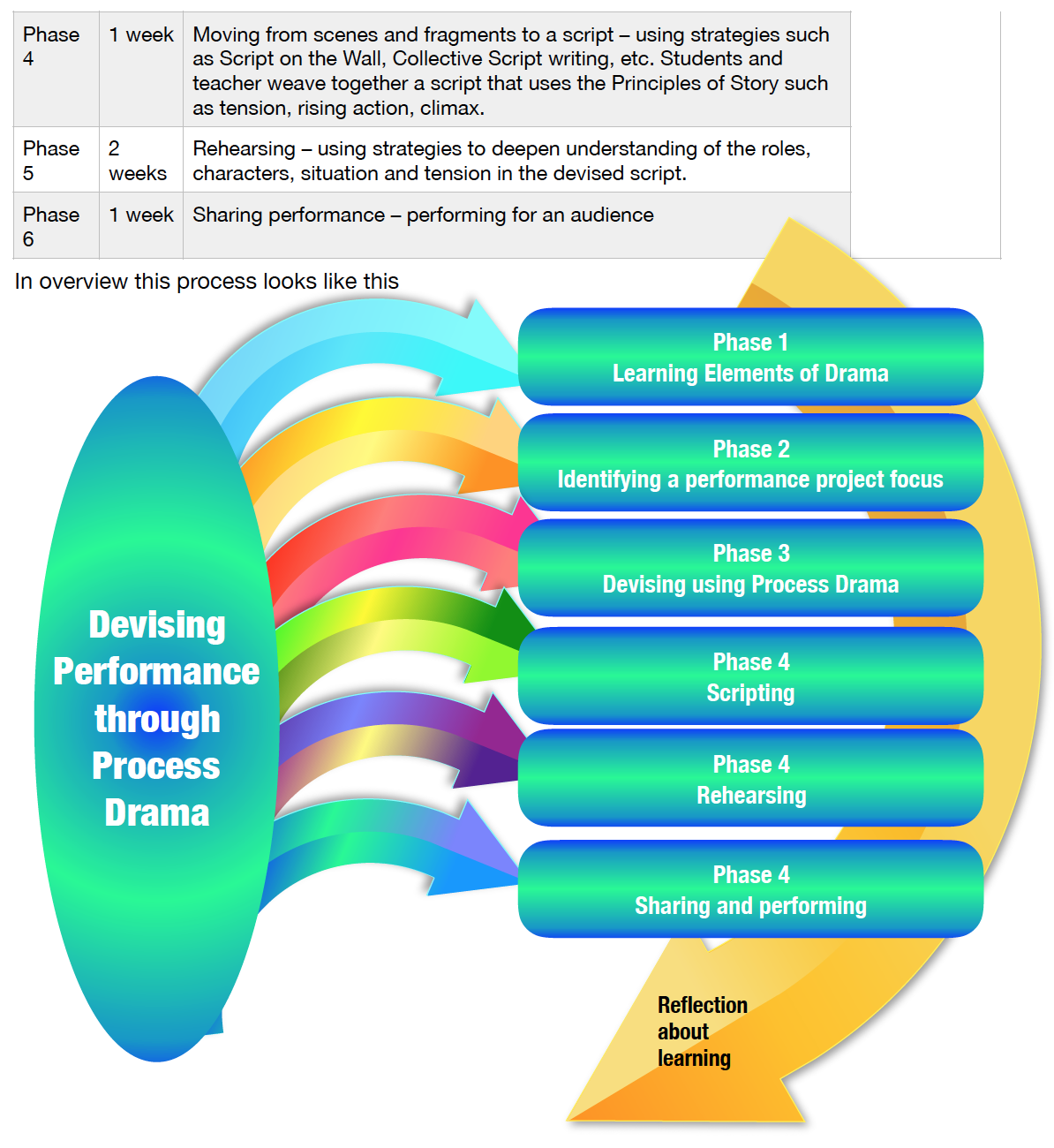Devising Performance through Process Drama
/After a workshop in Zhuji at IDEA IDEC Regional Drama Education Conference, introducing participants to using process drama strategies to teach drama, I received an email from one of them: I understand how you might use process drama strategies as one-off activities or lessons. but how does that help me meet the expectations of my school and parents for a performance as a result of the drama classes?
What is Process Drama?
Process Drama is a method of teaching and learning drama where both the students and teacher are working in and out of role (definition from the Australian Curriculum: The Arts, https://www.australiancurriculum.edu.au/f-10-curriculum/the-arts/Glossary/?term=process+drama.
Process Drama is a term coined by John O’Toole, Cecily O’Neill and others to describe contemporary dramatic explorations – most often in an educational setting – based on extended connected improvisations and structured through a sense of theatre and drama structures and traditions.
Initiated through a powerful pre-text process drama, like improvisation, creates a “dramatic elsewhere”, a fictional world but one that is inhabited for insights, interpretations and understanding of participants rather than audiences.”
Excerpt From: Robin and Hannah Pascoe. “Drama and Theatre Key Terms and Concepts.” iBooks.
Why is it a powerful way of learning drama?
Process Drama is a way of helping students know and learn drama by participating in drama processes themselves – by embodying drama through engaging their thinking, emotions and physical selves. It is one powerful way of students learning in practical ways the Elements of Drama, the Principles of Story, the skills and processes of drama performance and production.
In Process Drama teachers and students use a range of drama learning and teaching strategies such as Role on the Wall, Hot seating, etc. They are tools, fundamental building blocks that help students understand how we can create, first of all, moments of drama. They then learn how to craft those moments into dramatic sentences and paragraphs and shape them into a devised performance involving scripting, rehearsing and sharing for an audience. You can find more about Drama Learning and Teaching Strategies in Learning Drama Teaching Drama (Pascoe and Pascoe 2014).
Devising using process drama is a more complex drama strategy. It is sometimes called Play Building.
In overview, a teacher can develop a term or semester long program involving:
You can find more about devising and play building in Building Plays Simple playbuilding techniques at work (Tarlington and Michaels 1995)
Bibliography
Pascoe, R. and H. Pascoe (2014). Drama and Theatre: Key Terms and Concepts (3rd Edition). Perth, StagePage.
Tarlington, C. and W. Michaels (1995). Building Plays Simple playbuilding techniques at work. Markham, Ontario, Canada, Pembroke Publishers/Heinemann.







